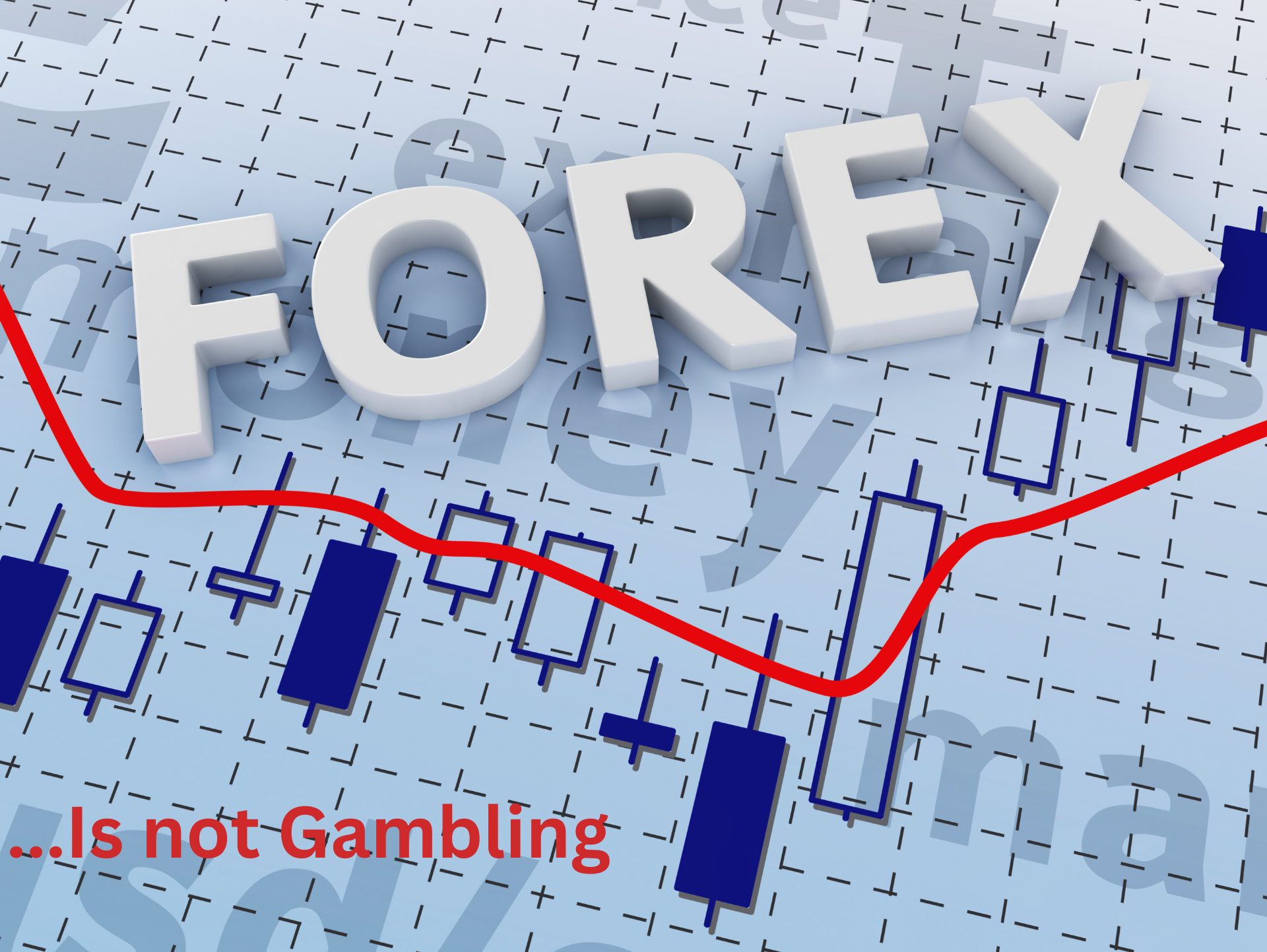
Introduction:
The world of forex trading has been a topic of discussion among many people who compare it to gambling due to its speculative nature. However, this comparison oversimplifies the intricacies involved in forex trading. In this blog post, we will explore whether or not forex trading is similar to gambling by examining key differences between them and highlighting how important strategy plays into success as well as risk management techniques that must be utilized effectively.
Forex Trading vs. Gambling – What’s the Difference?
Purpose and Intention:
Forex trading involves buying and selling currencies with the aim of making profits from price fluctuations. Traders use a range of analytical tools, strategies, and market research to inform their decisions. This practice requires careful consideration before taking any action in order to maximize potential gains while minimizing risks.
Gambling typically involves games of chance like lotteries, casinos, or sports betting, where luck determines the outcome rather than skillful analysis. People rely on randomness and unpredictability in these activities
Risk Management:
In the world of forex trading risk management is a crucial aspect that cannot be ignored. Traders use tactics such as stop-loss orders and position sizing to minimize potential losses while safeguarding their capital. These strategies are essential tools in ensuring successful trades without compromising on security measures. Therefore, it’s imperative for all traders to prioritize effective risk management techniques when engaging with this marketplace.

Gambling:
A pastime that often involves taking risks without proper risk management strategies in place. People who place bets haphazardly without any thoughts to reducing potential losses are simply gambling with their hard-earned money. This type of gambling is risky and does not contain any skills.
Skill and Knowledge:
To achieve success in forex trading, one must acquire knowledge through education and develop their skills continuously. Traders use technical analysis along with fundamental analysis to make informed decisions that lead them toward victory. This process requires constant learning as the market is constantly evolving, making it crucial for traders to stay up-to-date on all aspects of trading. With these strategies in place, anyone can become a successful trader within this dynamic industry.
Gambling: A pastime that has been around for centuries, involves various forms of games. While some require skills such as poker or blackjack; others like slot machines are purely based on chance alone. The latter type does not rely on any particular ability and is entirely dependent upon luck.
Long-term vs. Short-term Thinking
Forex traders are known for their long-term approach to generating profits through the avid use of forex trading skills. They establish clear objectives and implement well-thought-out strategies in order to achieve them. Their focus is on consistent gains over time rather than short-term wins. By doing so they can create a stable foundation upon which future successes may be built.
Gambling: A Short-Term Fix?
For many people, gambling is a way to escape reality and seek instant gratification. However, this approach often comes at the expense of long-term planning which can lead to financial instability or other negative consequences down the line. Is it worth it for that quick win? It’s up to each individual to decide.
The Importance of Strategy in Forex Trading
Forex trading is not just about luck or chance; it requires skillful decision-making based on analysis and strategy. Successful traders employ various tactics such as technical analysis, fundamental analysis, and risk management among others to increase their chances of profitable trades. They also develop comprehensive plans with specific entry/exit points while keeping clear goals in mind at all times. This approach helps them stay focused throughout the process ensuring success over time.

Managing Risk in Forex Trading
Unlike gambling where risk-taking is often reckless and unplanned, forex traders prioritize capital preservation by limiting their exposure on each trade. This approach involves implementing effective stop-loss orders that automatically exit losing positions before they become catastrophic losses. By doing so, traders can avoid significant financial setbacks while still achieving profitable outcomes over time.
Forex Trading Is Not Gambling:
Forex trading and gambling share similarities in terms of risk but they are distinct activities. Forex trading requires analytical skills, strategic thinking, and effective management of risks to succeed. Education, discipline, and continuous improvement are crucial factors for success in this field.
Gambling is characterized by its reliance on chance, luck, and unpredictable outcomes. While some forms of gaming may require skill they lack the structured approach and long-term perspective that forex trading offers. This makes it difficult to compare these two activities in terms of their overall value as investment options.
Forex trading is often viewed as either an investment or speculation opportunity. However, it’s not synonymous with gambling when approached strategically and mindful of sound risk management practices. A well-researched strategy coupled with prudent decision-making can lead to success in this arena.
To comprehend the difference between forex trading and gambling we need to examine their respective features. Forex trading takes place within a well-regulated financial market where participants range from individual investors to large-scale institutions. This system operates under the supervision of regulatory authorities across various countries ensuring transparency and accountability at all times.
Gambling is commonly associated with casinos, betting shops, or online platforms where games of chance are available. While some forms of gaming have regulations in place others may raise concerns about fairness and odds clarity due to their ambiguous nature within the industry itself.

The Significance of Analysis in Forex Trading
Forex trading sets itself apart from gambling by placing a premium on analysis and strategy. Forex traders use technical analysis to forecast future price movements by studying historical data and statistical trends. This analytical approach involves analyzing patterns, charts, and indicators in order to make informed decisions about buying or selling currencies at the right time. With its emphasis on past performance as a predictor of future results, it provides valuable insights into market behavior that can help investors succeed in this competitive field.
Forex traders who use fundamental analysis evaluate economic indicators, geopolitical events, central bank policies, and global economic conditions to make informed decisions. By analyzing these factors they aim for success in their trades.
Risk and Reward in Forex Trading:
To fully grasp the risk and reward dynamics it is crucial to comprehend their differences. Forex traders use risk management strategies to regulate their exposure to losses. This involves setting stop-loss orders and position-sizing techniques that help protect capital while limiting downside risks. By implementing these measures, forex traders can better manage the inherent volatility of currency markets.
Forex trading presents an opportunity for significant rewards through consistent profit accumulation over time. Successful traders prioritize long-term gains and focus on consistency rather than short-term wins. With careful planning and strategy, one can potentially achieve substantial financial success in this field.

The Long-Term View:
Unlike gambling, forex trading typically takes on a longer-term outlook. This is because it requires careful consideration and analysis rather than quick decisions based solely on chance or luck.
Forex traders often have long-term financial objectives and investment strategies. They aim to accumulate wealth steadily over time by following their well-thought-out plans. This approach allows them to make informed decisions while minimizing risks associated with short-term fluctuations in the market.
Gambling is often characterized by a focus on short-term outcomes as individuals seek immediate gratification or excitement from games of chance. This approach can lead to impulsive decision-making and neglect of long-term goals.
Conclusion: The Difference is Clear
In summary, forex trading and gambling are vastly different in terms of purpose, approach, risk management strategies employed as well and long-term perspectives. While both involve uncertainty and risks associated with financial investments; forex trading is primarily driven by analysis-based decision-making processes that aim at achieving consistent returns over time through effective strategy formulation.
Unlike forex trading, gambling is more dependent on luck and unpredictable outcomes. While some forms of gaming may require skill they lack the structured approach to risk management that characterizes successful currency investors. This highlights how important it is for those interested in financial markets to choose their activities wisely when seeking profits from market movements.
The decision to engage in forex trading ultimately depends on your financial objectives, tolerance of risk, and dedication toward education and discipline. With a well-researched strategy that prioritizes prudent risk management, this activity is not equivalent to gambling but rather an informed investment choice.
